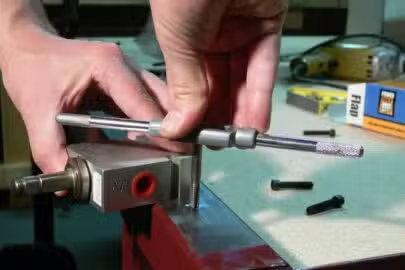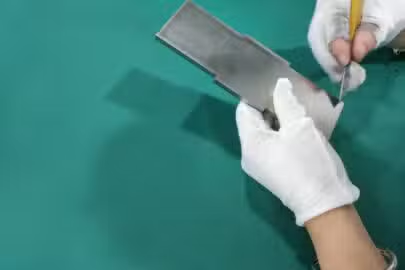In the healthcare industry, the choice of materials holds profound implications for patient care, treatment efficacy, and the overall advancement of medical science. The significance of medical-grade materials cannot be overstated. They form the bedrock of innovation, ensuring the safety and success of various medical applications.
Medical-friendly materials refer to materials that are suitable for use in medical applications, ensuring compatibility with biological systems and adherence to safety and regulatory standards. These materials are carefully chosen for their ability to perform specific functions within medical devices, implants, or equipment.
In this guide, we’ll look into the top six medical-grade materials that stand as cornerstones in the advancement of modern medicine. These materials shape the healthcare industry with unique properties and applications.
What Are Medical Friendly Materials?

In simple terms, medical-friendly materials are substances carefully chosen and engineered to ensure they are safe, effective, and compatible with the human body in various medical applications. These materials are specifically designed to be used in healthcare settings, ranging from surgical procedures to developing medical devices.
The primary goal of medical-friendly materials is to minimize potential harm or adverse reactions when they come into contact with the human body. They undergo rigorous testing and stick to strict standards to guarantee their reliability and safety in medical settings. These materials play a crucial role in designing and manufacturing medical equipment, implants, and devices, contributing to the overall success and well-being of patients undergoing medical treatments.
In essence, medical-friendly materials are the unsung heroes behind the scenes, ensuring that the tools and technologies used in healthcare are not just effective but also considerate of the delicate nature of the human body.
6 Top Medical-Grade Materials
Here are the top six medical-grade materials used to manufacture many medical devices and implants. Here, we will have a look at their properties and their applications.
Stainless Steel
It is a versatile and widely used material in the medical field due to its exceptional durability, corrosion resistance, and hygienic properties. It is composed mainly of iron, with a minimum of 10.5% chromium content, which forms a protective oxide layer on its surface, preventing rusting and corrosion.
Properties
- Corrosion Resistance: Stainless steel’s resistance to corrosion is paramount in medical settings where exposure to bodily fluids and sterilization processes is frequent. This property ensures the longevity and reliability of medical instruments and equipment.
- Strength and Durability: Known for its robustness, stainless steel provides the power necessary for surgical instruments and medical devices. Its durability allows these tools to withstand the rigors of medical procedures without compromising performance.
- Biocompatibility: Stainless steel exhibits excellent biocompatibility, making it suitable for implants and surgical instruments that come into direct contact with the human body. This property reduces the risk of adverse reactions, promoting patient safety.
- Aesthetic Appeal: Besides its functional properties, stainless steel’s polished surface provides a clean and aesthetically pleasing appearance. This is particularly important for instruments used in surgeries and medical procedures.
Applications
Stainless steel finds extensive use in several medical applications, contributing to the efficiency and safety of healthcare practices:
- Surgical Instruments: From scalpels to forceps, stainless steel is the material of choice for crafting precision surgical instruments due to its strength, durability, and resistance to corrosion.
- Medical Implants: Stainless steel implants, such as orthopedic screws and plates, benefit from the alloy’s biocompatibility and strength, providing stability and support for patients undergoing various medical procedures.
- Medical Devices: Stainless steel is a common material in the manufacturing of medical devices such as catheters, dental instruments, and diagnostic equipment, where its properties contribute to the reliability and longevity of these tools.
Magnesium

Magnesium brings a unique set of qualities that are reshaping the landscape of medical applications. From orthopedic interventions to cardiovascular solutions, magnesium’s versatility and innovative characteristics are at the forefront of advancements in modern medicine.
Properties
- Low Density: Magnesium’s low density makes it a perfect choice for applications where weight is important. In the medical field, this property is particularly advantageous in manufacturing lightweight medical implants.
- Biocompatibility: Magnesium exhibits excellent biocompatibility, making it suitable for medical implants such as orthopedic devices. This property minimizes the risk of adverse reactions within the human body.
- Mechanical Properties: With a good balance of strength and ductility, magnesium is well-suited for applications requiring structural integrity and the ability to undergo deformation without breaking. This is valuable in the development of medical devices and implants.
Applications
- Orthopedic Implants: Magnesium alloys are used in the manufacturing of orthopedic implants, including screws and plates. These implants provide structural support during the healing process and eventually dissolve, eliminating the need for a second surgery for removal.
- Cardiovascular Stents: Magnesium alloys are explored for use in cardiovascular stents. The biodegradability of magnesium makes it a promising material for designing stents that can gradually disappear after fulfilling their function.
- Biodegradable Medical Screws: Magnesium screws find application in surgeries where temporary fixation is needed. These screws provide support during the healing phase and are eventually absorbed by the body.
Titanium
Titanium stands as a symbol of strength, reliability, and biocompatibility, propelling it to the forefront of medical innovations. From joint replacements to cutting-edge surgical instruments, titanium’s exceptional qualities are redefining the boundaries of what’s achievable in healthcare.
Properties
- High Strength-to-Weight Ratio: Titanium boasts a remarkable strength-to-weight ratio, providing exceptional strength while remaining relatively lightweight. This property is crucial for applications where strength and reduced weight are paramount.
- Corrosion Resistance: CNC machining titanium exhibits excellent corrosion resistance, making it ideal for implants and devices that may come into contact with bodily fluids. This property ensures the longevity and reliability of medical instruments.
- Non-Magnetic: Titanium is non-magnetic, making it suitable for applications in magnetic resonance imaging (MRI) and other medical procedures where magnetic interference must be avoided.Properties
Applications
- Dental Implants: Titanium is widely used in the manufacturing of dental implants due to its biocompatibility and corrosion resistance. Dental implants made of titanium offer durability and long-term success.
- Joint Replacements: Titanium and titanium alloys, such as hip and knee replacements, are commonly used in common replacement surgeries. The strength and biocompatibility of titanium contribute to the success and longevity of these implants.
- Surgical Instruments: Titanium’s strength, corrosion resistance, and lightweight nature make it an excellent choice for crafting precision surgical instruments, ensuring durability and reliability during medical procedures.
Polycarbonate (PC)

Polycarbonate (PC), a versatile and transparent thermoplastic, is a beacon of innovation in the healthcare sector. Its distinct properties make it a valuable player in various medical applications, offering transparency, durability, and ease of processing.
Properties
- Transparency: PC is inherently transparent, allowing for optical clarity. This property is advantageous in producing medical devices such as incubators, face shields, and lenses for surgical instruments.
- Impact Resistance: Known for its exceptional impact resistance, PC is a preferred choice for protective equipment, safety goggles, and components requiring durability in medical settings.
- Heat Resistance: PC exhibits high heat resistance, making it suitable for applications where sterilization through autoclaving or exposure to high temperatures is necessary, such as in specific medical instruments.
Applications
- Medical Devices: PC is extensively used to manufacture medical devices like blood oxygenators, infusion sets, and respiratory devices due to its clarity, durability, and ability to withstand sterilization processes.
- Protective Gear: Face shields, safety goggles, and other protective gear benefit from PC’s impact resistance, providing reliable protection for healthcare professionals in various medical settings.
- Laboratory Equipment: PC’s transparency and chemical resistance make it suitable for laboratory equipment such as petri dishes, test tubes, and other containers used in medical research.
Polyetheretherketone (PEEK)
Polyetheretherketone (PEEK) stands as a testament to engineering prowess, contributing to groundbreaking advancements in the medical field. Its unique blend of properties makes it a material of choice in various applications, mainly where strength, biocompatibility, and radiolucency are paramount.
Properties
- High Mechanical Strength: PEEK exhibits impressive mechanical strength, rendering it suitable for load-bearing applications in orthopedic implants, spinal devices, and structural components of medical devices.
- Radiolucency: PEEK’s radiolucency is crucial for clear visibility in medical imaging. This makes it an ideal choice for devices like spinal implants that need to be visible in X-rays and other diagnostic imaging techniques.
- Chemical Resistance: PEEK’s resistance to a wide range of chemicals enhances its suitability in aggressive medical environments, maintaining the integrity of implants and devices over time.
Applications
- Orthopedic Implants: PEEK is a common choice for orthopedic implants, including spinal cages, due to its exceptional strength, biocompatibility, and radiolucency.
- Dental Implants: PEEK finds application in dental implants and prosthetics, offering biocompatibility and the ability to blend with natural tooth structures seamlessly.
- Medical Instruments: PEEK’s strength and chemical resistance make it suitable for manufacturing various medical instruments, including surgical tools and components of diagnostic equipment.
Polyvinyl chloride (PVC)

Polyvinyl Chloride (PVC), a versatile thermoplastic, has become a cornerstone in medical manufacturing applications, providing a balance of affordability, durability, and ease of processing.
Properties
- Versatility: PVC is highly versatile, allowing for various formulations that cater to specific medical requirements, from flexible tubing to rigid components.
- Chemical Resistance: PVC is resistant to several chemicals, making it suitable for applications where exposure to various substances is every day, such as medical tubing and containers.
- Durability: PVC’s durability contributes to its longevity in various medical applications, ensuring the reliability of medical devices and equipment.
Applications
- Medical Tubing: PVC is extensively used in manufacturing medical tubing for intravenous (IV) lines, catheters, and other fluid delivery systems due to its flexibility and chemical resistance.
- Disposable Medical Devices: PVC’s affordability and ease of processing make it a common material for disposable medical devices, including syringes, blood bags, and wound dressings.
- Medical Packaging: PVC creates a protective barrier against contaminants and provides a clear view of the packaged contents.
Other Materials Used and Applications For Manufacturing Medical Products

Aside from the six primary medical-grade materials, many other materials can still be used to prototype medical devices and equipment rapidly.
Polypropylene (PP)
Polypropylene (PP) plays a crucial role in the medical manufacturing landscape. Its inherent chemical resistance makes it suitable for crafting laboratory equipment and containers, ensuring durability and reliability in various medical settings. PP’s heat resistance also qualifies it for applications in medical devices requiring sterilization, enhancing its versatility. The lightweight nature of PP contributes to its prevalent use in the production of disposable medical products, such as syringes and packaging materials, where minimizing weight is advantageous.
Polyethylene (PE)
Polyethylene (PE) stands out for its exceptional flexibility, making it an ideal choice for producing medical tubing and bags. This flexibility ensures ease of use and adaptability in various medical rapid prototyping machining of medical devices. PE’s good chemical resistance enhances its suitability for medical packaging, providing a reliable barrier against contaminants. Its lightweight nature further contributes to producing disposable medical items, where a balance of flexibility and low weight is essential.
Polyamide (PA)
Polyamide (PA) takes center stage in medical manufacturing, particularly in applications that demand strength and durability. Its high mechanical strength makes it a preferred CNC medical material for orthopedic implants and surgical instruments, where robustness is paramount. Certain polyamides, known for their biocompatibility, find applications in specific medical implant scenarios, ensuring compatibility with the human body. PA’s chemical resistance adds another layer of suitability for medical devices exposed to various substances, contributing to the integrity and longevity of these products.
Polytetrafluoroethylene (PTFE)
Polytetrafluoroethylene (PTFE), renowned for its non-stick and low-friction properties, finds valuable applications in medical manufacturing. Its exceptional chemical resistance makes it suitable for medical equipment and devices where exposure to harsh chemicals is a concern. PTFE’s biocompatibility and low friction make it an ideal choice for specific medical applications, including coatings for surgical instruments and components in medical devices that require smooth, non-reactive surfaces.
Polystyrene (PS)
Polystyrene (PS) is a versatile material in medical manufacturing, with its ease of processing and affordability. Its transparent nature lends itself to applications in medical packaging, allowing for clear visibility of the packaged contents. PS’s lightweight property produces disposable medical items like Petri dishes and syringes. Its insulating properties make it suitable for specific laboratory equipment, further showcasing its diverse role in the medical field.
How To Choose the Right Materials for Your Medical Products

Before considering which material is best for your production needs, there are some essential factors you have to consider. The factors include:
Contact Time
CNC Medical equipment for long-term use includes pacemakers, prosthetics, and artificial joints that stay in or on the body. It’s important to use solid materials for these devices, which must work well with the body (biocompatible).
The best metals for this job are titanium and stainless steel because they work well with the body and don’t cause harm. Plastic materials like PE, PU, PET, and acrylic are good for these applications. They help ensure the medical equipment is reliable and safe for long-term use.
Sterilization Needs
Sterilization is a common practice in the medical field. It consists of methods including steam, chemical vapor, and radiation sterilization. These processes subject the surfaces of medical materials to agents that can degrade them, such as high temperatures, chemicals, and radiant energy. It is essential to pick materials that can resist these agents effectively.
Stainless steel is an good choice due to its resistance to corrosion, its ability to withstand high temperatures, and multiple sterilization cycles. Titanium, known for its corrosion resistance and durability during sterilization, is also frequently used. Plastics like PEEK, PC, PU, and ABS also present excellent alternatives for these applications.
Radiation Resistance
Magnetic resonance imaging, X-rays, and chemotherapy are potential sources of radioactive contamination in medical components. It has the effects accumulating over the product’s lifespan. Consequently, selecting medical CNC machining materials that won’t degrade when exposed to radiation is vital. This is especially vital for X-ray machines, surgical equipment, and other diagnostic tools.
Among the previously mentioned metal materials, titanium is the most radiation-resistant due to its high density, reducing the likelihood of radiation absorption. Manufacturers also opt for resins like ABS, PU, and PEEK for these specific applications.
Chemical Resistance
Numerous medical items such as surgical tools, ventilator masks and tubes, and diagnostic equipment need regular cleaning, sterilization, and reuse. This requires biocompatible materials that can withstand the chemicals used for cleaning and sterilization.
Stainless steel is recognized for its strong resistance to various chemicals, including acids, bases, and organic compounds. Similarly, titanium and aluminum show good resistance to corrosion from specific chemicals, making them excellent options for creating these components. Additionally, plastic resins like PC and PEEK are valuable in such scenarios.
Custom Applications
In the production of medical materials, custom applications demand specialized considerations to cater to the unique requirements. Here are some typical applications and the thighs to consider before selecting a suitable material.
- Artificial Joints
The choice of plastic for artificial joints depends on the specific joint being replaced and the individual patient’s needs. Materials for semi-permanent or permanent joint replacements must exhibit strength, biocompatibility, and wear resistance.
Commonly used metals for artificial joints, such as titanium, stainless steel, and cobalt-chromium alloys, are preferred due to their high strength, biocompatibility, and resistance to corrosion and wear. Plastic resins like UHMWPE, PEEK, and PTFE are frequently utilized for their compatibility with joint replacement applications.
- Prosthetics
The prosthetic design prioritizes ease of formation, strength, and the ability to withstand high impact, particularly for artificial limbs and orthotics. The material choice depends on the prosthetic’s location, weight, and required durability.
Titanium, known for its strength, biocompatibility, lightweight nature, and corrosion resistance, is a popular choice. Stainless steel is also an excellent option. Plastic resins suitable for prosthetics include ABS+PC, PMMA, PEEK, glass-filled nylon, and High-Impact Polystyrene (HIPS).
- Drug Delivery
Ensuring drug dispensers effectively deliver dosages without aerosols and fine powders adhering to material surfaces is crucial to maintaining the accuracy of drug administration and treatment outcomes. Therefore, selecting appropriate materials for tubes, vials, injectors, cans, and other drug delivery devices is essential.
Materials such as stainless steel and titanium, possessing excellent static-dissipative properties, prove suitable for drug dispensers. Anti-static plastic polymers, including polypropylene, ABS, PC, and acrylic, are also viable options.
Conclusion
Material selection is more than a technical decision; it is a commitment to patient well-being and effective healthcare. Materials such as titanium, stainless steel, and advanced polymers are essential for long-term implants to sterilization-resistant devices. The unique properties of each material contribute to the durability and safety of medical products.
Whether dealing with radiation, sterilization, or complex medical applications, carefully selecting materials highlights the relationship between material science and healthcare innovation. Ultimately, the shared goal is to improve patient care and quality of life through medical technology advancements. Choose Zintilon for all your medical production needs. Their expertise and dedication to precision engineering make them a trusted partner in the healthcare industry, ensuring that every component produced meets the highest safety and performance standards. Get a quote today to get started!





